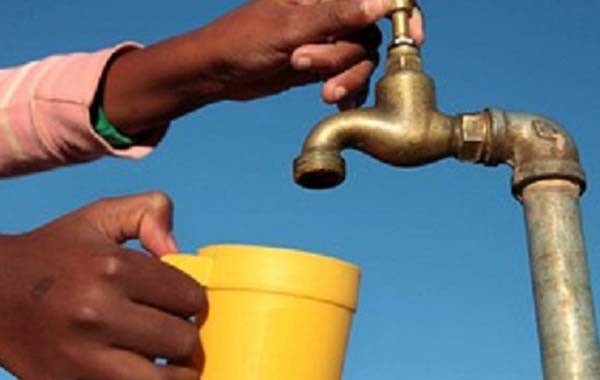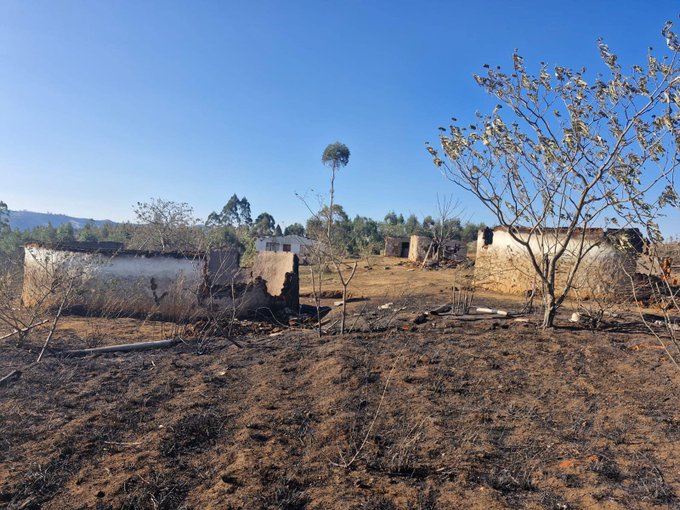Bulawayo Council Likely Killing School-Kids After Cutting Water Supplies
By Farai D Hove | Bulawayo, Zimbabwe – The Bulawayo City Council (BCC) is facing the possibility of massive lawsuits after cutting off water supplies to 59 schools in a bid to recover outstanding debts. The drastic move, which affects nearly 30% of the city’s educational institutions, has sparked outrage among parents, educators, and human rights advocates, who argue that the decision not only endangers vulnerable children but also violates constitutional and international human rights laws.
Mounting Debts and Aggressive Recovery Measures
The council’s latest report reveals a growing financial crisis, with total debtors’ figures soaring to ZiG712.6 million by the end of September 2024, a 21% increase from the previous month. Of this, domestic users account for the majority (US$19.4 million), followed by industrial and commercial debtors (US$7.3 million) and the government (US$1.8 million).
In response, the council has launched widespread debt recovery measures, including issuing final demands and disconnecting water supplies. Among those targeted were 59 schools that owed US$607,419 collectively. The council’s report shows this was part of broader efforts, including disconnections to 461 homes in Nkulumane and engagement with over 873 companies.
However, critics argue that targeting schools is not only a public health and educational risk but also a breach of legal and ethical standards.
Legal and Human Rights Implications
1. Constitutional Violations:
The Zimbabwean Constitution (2013) guarantees the right to safe, clean, and potable water under Section 77. By cutting off water to schools, the council is accused of contravening this fundamental right, particularly as it affects children, who are considered a vulnerable group under the law.
2. Education Rights at Risk:
Zimbabwe’s Education Act obligates the state to ensure schools operate in a safe and conducive environment. Disrupting access to water undermines this obligation, jeopardizing hygiene, food preparation, and overall health, potentially leading to school closures.
3. International Commitments:
Zimbabwe’s ratification of the United Nations Convention on the Rights of the Child (CRC) and the International Covenant on Economic, Social and Cultural Rights (ICESCR) places an obligation on the government to prioritize the rights of children and ensure access to essential services. The disconnections violate children’s rights to education, health, and an adequate standard of living.
4. Legal Precedents:
Legal experts cite cases like Mazibuko v City of Johannesburg (2009) and Residents of Bon Vista Mansions v Southern Metropolitan Local Council (2002) from South Africa, where courts ruled that water disconnections without adequate alternative arrangements violated human rights. Similar arguments could be used in potential lawsuits against the BCC.
Public Health and Safety Risks
The water disconnections have raised fears of public health crises, including the spread of waterborne diseases like cholera and typhoid, which have plagued Zimbabwe in recent years. Schools rely on water for basic sanitation and hygiene, with the lack of access posing a serious threat to students’ well-being.
The disconnections also risk disrupting education, as unsanitary conditions could force schools to close or reduce attendance. With Bulawayo schools already under pressure, this decision threatens to exacerbate existing challenges in the education sector.
Backlash and Lawsuit Threats
Parents, teachers’ unions, and human rights organizations have condemned the council’s actions, with some preparing to take legal action. Advocates argue that the BCC has failed to uphold its duty to protect children and their rights, prioritizing debt recovery over public welfare.
“We cannot stand by while our children’s health and education are put at risk. The council has ignored constitutional and international obligations in favor of a shortsighted financial strategy,” said a spokesperson for a coalition of advocacy groups.
Calls for Alternatives
Critics are urging the BCC to explore alternative debt recovery measures, such as:
• Negotiating payment plans with schools.
• Seeking subsidies or assistance from the central government.
• Reallocating resources within the council’s budget.
• Using targeted legal action for major commercial and industrial defaulters instead of blanket disconnections.
A Balancing Act: Fiscal Responsibility vs. Human Rights
The BCC’s actions highlight the tension between financial sustainability and protecting basic human rights. While the council’s financial crisis is undeniable, its methods have drawn widespread criticism, with calls for greater accountability and a more compassionate approach to debt recovery.
As potential lawsuits loom, this controversy may set a significant legal precedent for balancing local government financial pressures with human rights obligations. For now, Bulawayo faces both a public relations crisis and a legal battle that could shape its governance and reputation for years to come.
Related
#Bulawayo #Council #Killing #SchoolKids #Cutting #Water #Supplies #ZimEye



